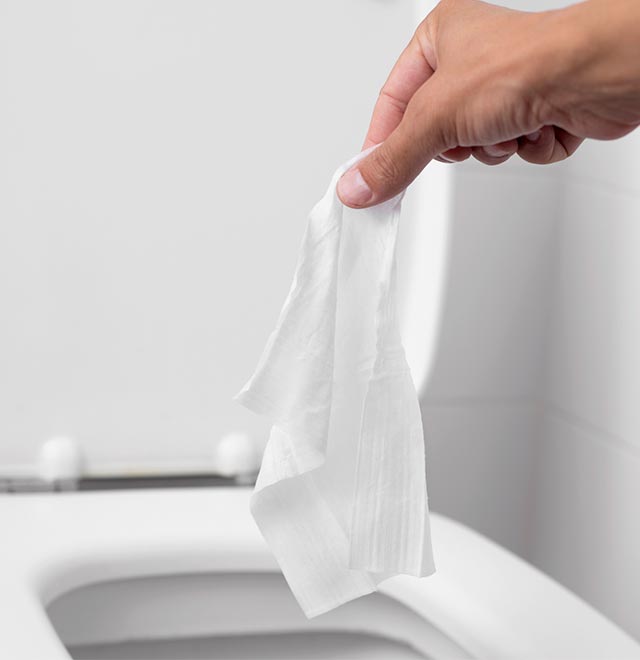Septic Tips & Information
Septic System
Do's
- Do spread laundry use over the week rather than many loads on one day.
- Do make a permanent record of where the key parts of your septic system are located for future maintenance (i.e. sepitc pumping service or field repairs).
- Do have septic pumping service regularly.
- Do keep the records of septic pumping service and septic system maintenance.
- Do use water-conserving devices where possible. Low flush toilets and showerheads are commonly available.
- Do have manually cleaned lint traps on your washing machine.
- Do check any pumps, siphons, or other moving parts of your system regularly.
- Do remove or prevent trees with large root systems growing near the leach field.
- Do keep surface water from upslope or from roof drains away from the leach field.
- Do check your interceptor drain regularly to ensure that it is free flowing.
- Run water regularly in seldom used drains such as sinks, tubs, showers, etc. to avoid noxious gases from building up and causing odors inside.
Septic System
Don'ts
- Don't overload the septic system with high volumes of water.
- Don't connect basement sump pumps to the on-site septic system.
- Don't connect backwash from water treatment devices directly to the on-site septic system without professional advice.
- Don't use a garbage disposal. Chopped up food particles do not break down in the septic tank and can make their way out into your leach field lines causing clogs.
- Don't allow large amounts of fats, chemicals, or solvents to enter the septic system; don't allow any plastics to enter.
- Don't enter a septic tank without proper ventilation. A second person is required to be present above ground and other requirements by law are met for confined spaces. Sewer gases can be fatal.
- Don't allow vehicles or heavy equipment to drive over or park on the leach field. This may compact the soil and crush the piping.
- Don't plant anything over the leach field except grass. Especially do not cover the septic tank or leach field with asphalt or concrete or other impermeable material.
- Don't put in a separate pipe to carry wash waters to a side ditch or woods. These "greywaters" also contain disease- carrying organisms.
- Above all else- DON'T wait for signs of failure. Check the septic system regularly.
Do Not Flush
The best thing to do for your septic system is to be sure not to flush anything other than human waste and toilet paper (preferably 1 ply toilet paper). Even if items are marked as "septic safe" do not flush them. For example, some baby wipes and cat litter may be labeled this way. It is not good for your septic system to flush anything other than human waste and toilet paper because it does not break down in the septic system correctly.
No Flush List
- Coffee Grounds
- Disposable Diapers
- Sanitary Napkins
- Cigarettes
- Fats, Grease & Oils
- Disinfectants
- Photographic Chemicals
- Pills & Unused Medication
- Thinners
- Backwash Water from Water Softeners
- Kitty Litter
- Tampons
- Condoms
- Plastic Materials
- Paper Towels
- Tissues
- Cloth
- Dental Floss
- Pesticides
- Paints
- Varnishes
- Waste Oils
- Poisons
- Other Chemical Wastes
- Sump Pump Discharge
We will get back to you as soon as possible.
Please try again later.
Odors
Odors coming from outside the house can be an indication that your septic system is overfull and you need septic pumping service. A vent pipe may also be installed to help release odors from the septic system. Sometimes when drains are not used the noxious gases can build up and cause odors. For example, if you have a shower downstairs that gets little use you may notice that at times there is an odor coming from that area. Running the water regularly in those drains will help keep odors at bay.
Toilets And Slow Drains
Garbage disposals are not a good thing to have along with a septic system. Chopped up food particles from the garbage disposal make their way into the tank and do not completely biodegrade before they can get out into your leach field lines. These lines can then become clogged with food and cause a back-up. Having a filter will be a good way to help prevent this from becoming an issue. Filters are placed on the outlet line of your septic tank and keep the hair, grit, grime, food particles etc... from escaping into your leach field lines and causing issues.
Do's & Don'ts of your septic system such as regular septic pumping service, record where key parts of your septic system are for septic maintenance, & more. Call us at (231) 943-5845 for more.
Address: 2233 M37 S, Traverse City, MI 49685 | Phone:
231-943-5845
|
231-943-2634
| Fax: 231-943-5250 | Email:
info@securitysanitation.com
| Business Hours: Monday-Friday: 7:00am-4:30pm






